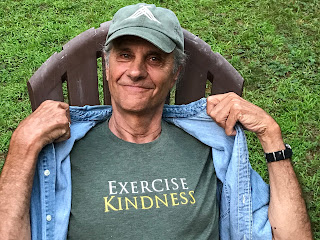No Trifling Matter Whether You Gain Or Lose Their Hearts
An Address To Those Who Have The Care of Children (Part 3)
Published Tract Association of Friends of Philadelphia, 1832
(but cannot be quite sure that it is not 1882)
Teach them that it is more honourable as well as more
blessed, to give than to receive; and that in order to this we must be frugal,
even in the highest stations and fortunes. Ease, affluence, generosity,
justice, and charity, are the lovely offspring of this humble virtue; as want,
anxiety, injustice, avarice, and hardness of heart, are the necessary
consequences of careless prodigality. The mind of a prodigal resembles his
mansion, where the vain glitter concludes in an habitation for beggars and
owls; but the person who with order and skill conducts his affairs, like the
sun, blesses all within his influence, and himself is not impoverished thereby.
Never shew a fondness for beauty, finery, fortune, titles, or any vanity before
them: teach them to be secret and discreet: shew an abhorrence to the least
instance of insincerity. Children will be insincere, if not permitted to speak
their minds freely. Let there be no punishment stated in the school for certain
faults; let lies, malice, anger, envy, falsehood, and illnature, never escape
condign punishment, which never should be inflicted by passionate expressions
or blows, and seldom by whippings, as these may be construed to proceed from
passion, and none others can: for the former, they will blame you; for the
latter, themselves. Children should be dealt with, as we would be dealt by. We
wish that our lives may be made agreeable, that our inclinations may be
consulted, as far as it is consistent with our interest; deal thus by them.
Trifles please or displease them; but it is no trifling matter whether you gain
or lose their hearts.
My reflection:
This short
passage is ripe with complexity. For me, on this day two lines stand out:
“is more
honourable as well as more blessed, to give than to receive” and
“Children will
be insincere, if not permitted to speak their minds freely”
I had the great
pleasure of joining the Friends Council on Education’s Service-Learning Peer
Network last week. And, as with times past, I left inspired and impressed by
both the service-learning work being done in Friends Schools but also by the
care and concern that the service-learning coordinators, heads of schools and
teachers place upon the work of instilling a commitment towards service in
their students. As an alumna, I can attest to the fact that my commitment to
service and social justice was the greatest gift bestowed upon me and has led
me to find meaning in my life and in my work. Interestingly my students (not at
a Friends School) told me today, as we are in week two of a large scale
service-learning project on global poverty and the Dominican Republic, that “kids
from 15-21 are not interested in helping anyone else but themselves.” I asked
them if that was how they felt personally. And they discussed how they do feel
empathic towards other people, but that they don’t know what to do, so they don’t
do anything. And just as Al Vernacchio from Friends Central who presented about
by-standers and being a witness, I was able to bring my students into a
discussion about what it would take to motivate 15-21 year-olds to move from a
passive to active role in society. And with much more enthusiasm by the end of
class they had filled the board with ideas on how to engage both themselves and
their peers.
And this moving
towards being engaged speaks to the second lined I selected, “Children will be
insincere, if not permitted to speak their minds freely.” In my classes,
students are intimidated by my demand that they take a stand, form a position
on a topic, and then find a way to respond. “I’ve never been asked what I think
before” they tell me. Whereas in a conversation I had with two Friends School
teachers a couple of weeks ago, we discussed to what degree students should
have input into the organization of the school day (you know, it’s that every
three to five year shifting of the upper school daily scheduled – “to block or
not to block, that is the question”). The teacher was arguing his position on
giving the students a large stake in determining the schedule, “let them create
it on their own.” And I reflected on how I would have found a tremendous sense
of empowerment if my teachers had displayed such trust in our capabilities. But
I warned that the value of role models, of being able to participate alongside
those with more knowledge and experience creates a greater opportunity for
learning. Especially when the more knowledgeable parties at the table are sincere
in their listening to new ideas and considering new ways of doing things.


Comments
Post a Comment